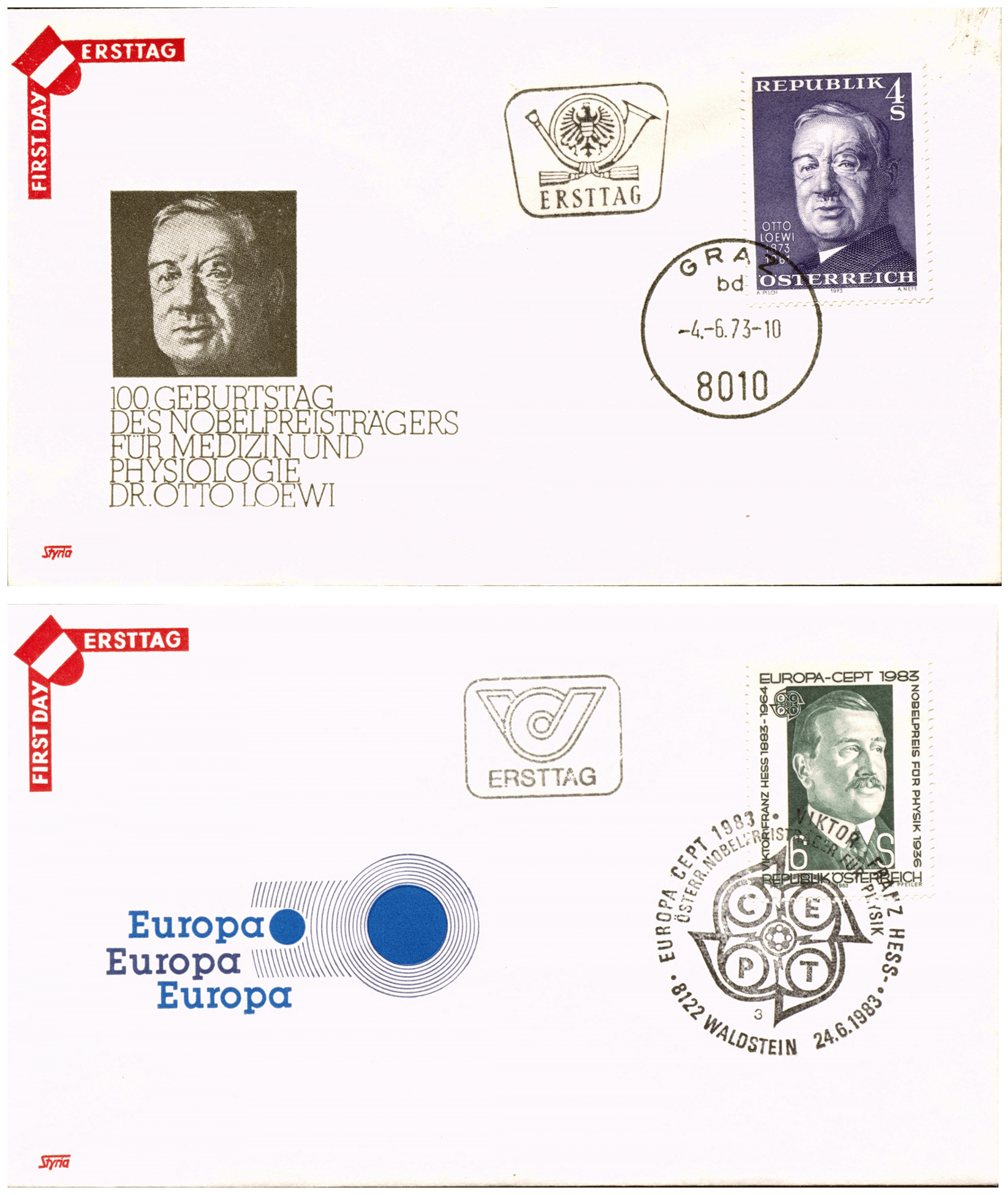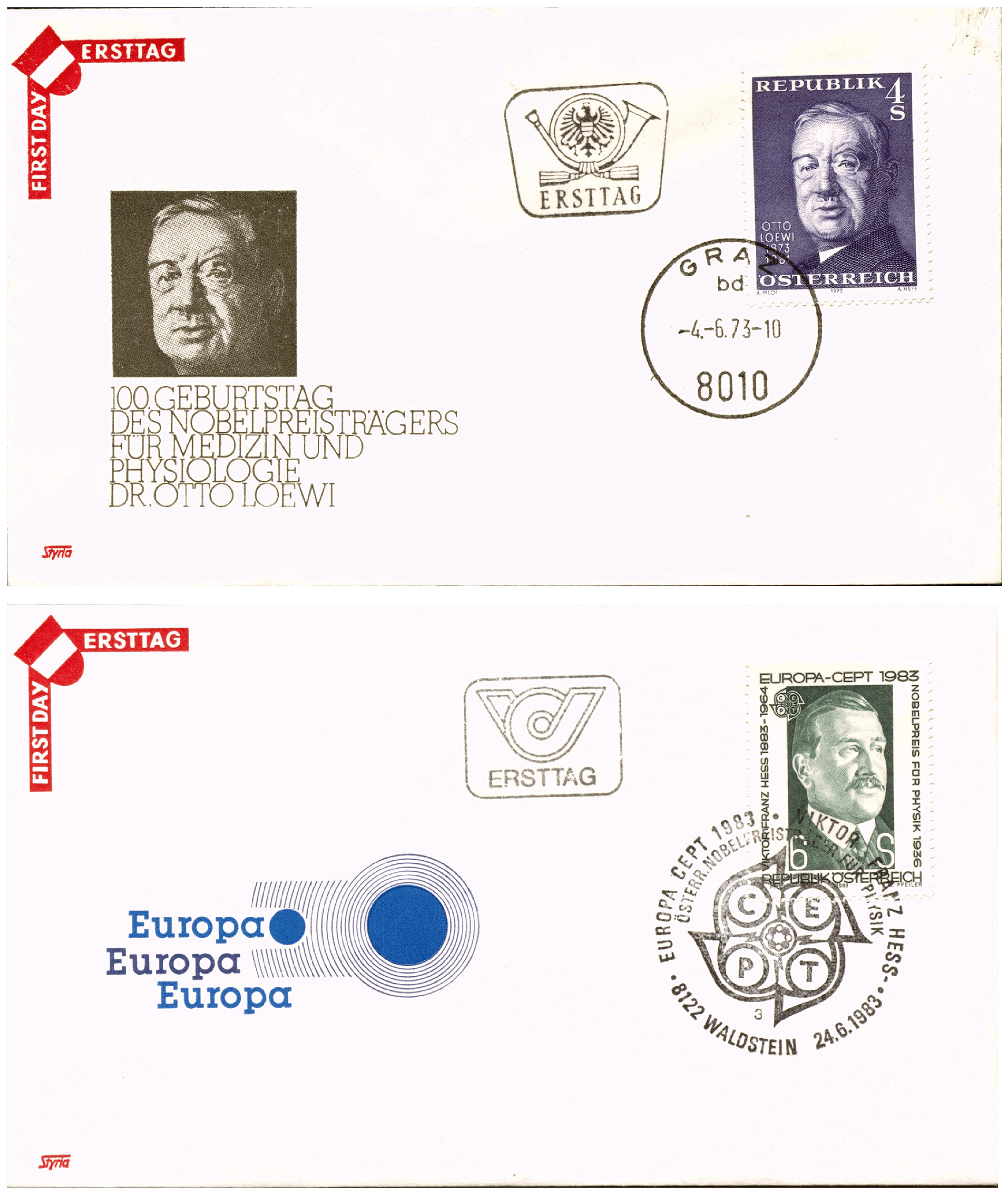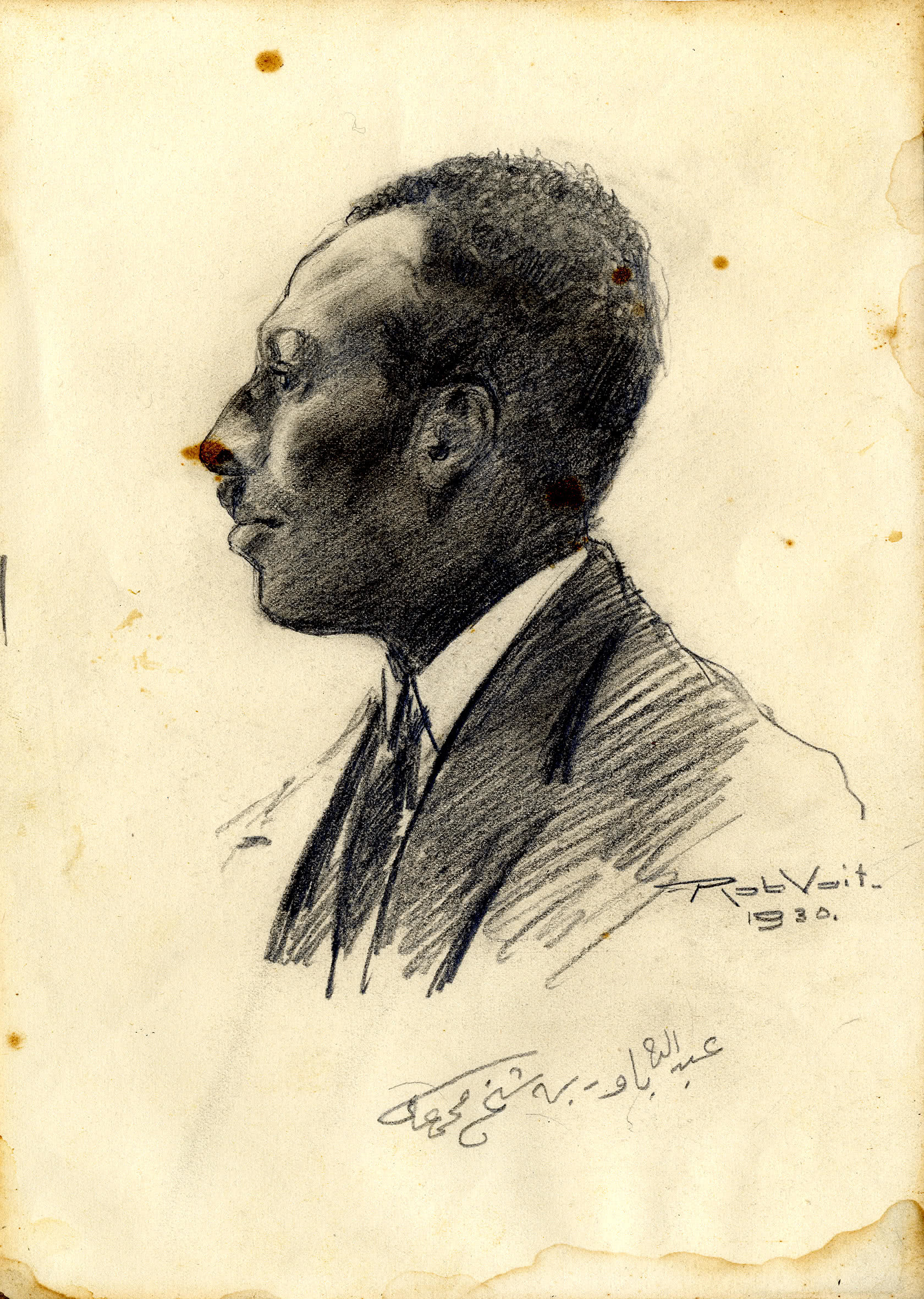
Otto Loewi Stamp / Victor Franz Hess Stamp / Erwin Schrödinger 1.000 Austrian Schillings Banknote Anonymous, 1973 / 1983
The Expelled Nobel Prize Winners
Right after the “Anschluss”, Otto Loewi (1873 – 1961, Nobel Prize in Physiology or Medicine in 1936), Viktor Franz Hess (1883 – 1964, Nobel Prize in Physics in 1936) and Erwin Schrödinger (1887 – 1961, Nobel Prize in Physics in 1933) were suspended by the National Socialists as tenured professors of the University of Graz, arrested (O. Loewi), dismissed, and expelled from Austria within the same year of 1938. Otto Loewi for being a Jew, Viktor Franz Hess for being “under Jewish influence” (of his wife) and for being “an opponent of National Socialism”, and Erwin Schrödinger for being “semitophile” and politically unreliable.
Lender: Graz Museum / Central Bank of Austria, Vienna
Graz Museum / Central Bank of Austria, Vienna
Otto Loewi (1873–1961)
Otto Loewi was a famous pharmacologist who held a chair in Graz as from 1909. His research on metabolic diseases and the human nervous system was groundbreaking. In 1936, together with Henry H. Dale, he received the Nobel Prize for Medicine “for their discoveries relating to chemical transmission of nerve impulses.” After the “Anschluss” of Austria to the German Reich in 1938, Loewi was arrested and banned from working. After he was released, he decided to emigrate, but under pressure from the National Socialists, who banned his wife from leaving the country, he had to sell family property, and to transfer the prize money received for the Nobel Prize to the National Socialists. In 1939, Loewi followed the call of the University of New York, where he died on 15 December 1961.
Victor Franz Hess (1883–1964)
Victor Franz Hess was an Austrian physicist who grew up and studied in Graz and was called to the University of Graz in 1919. He was awarded the Nobel Prize in Physics in 1936 for his discovery of cosmic rays, which he had first encountered in 1912. In Vienna, Hess researched radioactivity and air electricity. From 1931, he directed the newly established Institute for Radiation Research at the University of Innsbruck, where he finally observed cosmic radiation. In 1937 Hess was again appointed to the University of Graz. As an active Catholic and cosmopolitan man, he rejected National Socialism and emigrated to New York after the Nazi seizure of power and his immediate dismissal, where he continued his research and died on 17 December 1964.
Erwin Schrödinger (1887–1961)
Erwin Schrödinger was an Austrian physicist and science theorist who was appointed to the University of Graz in 1936. For his “discovery of new productive forms of atomic theory” he was awarded the Nobel Prize in Physics in 1933 together with Paul Dirac. Professor of Theoretical Physics in Zurich from 1922, he there formulated the Schrödinger equation, named after him—thus establishing wave mechanics as part of quantum mechanics. After the annexation of Austria by Nazi Germany, Schrödinger, who was fundamentally opposed to National Socialism, was banned from working. He emigrated to Great Britain. In 1956, he returned to Vienna and taught at the Institute for Theoretical Physics of the University of Vienna until he died on 4 January 1961.

